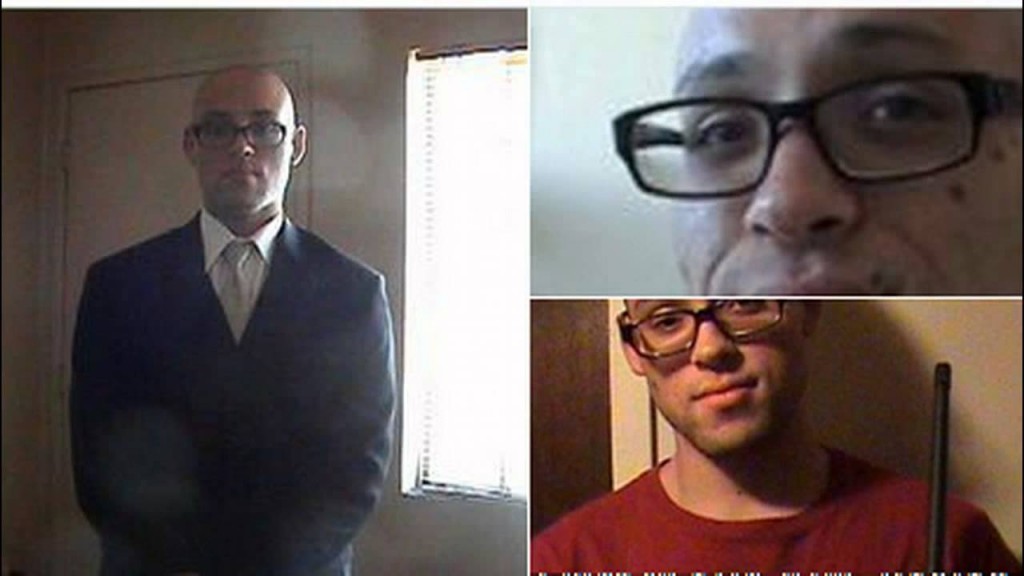
The psychology and motivation of mass murderers and shooters. Why did Chris Harper Mercer set out to inflict mass mayhem?
In the wake of the UCC gunman Chris Harper Mercer’s slaying of 9 individuals and injuring of 7, questions have been raised as to what may have motivated the shooter, with some believing that the socially ostracized and deeply troubled Mercer may have in the end sought infamy and renown along with revenge at a society that rejected and belittled him.
While questions have centered as to why Mercer specifically targeted an English writing class that he had recently enrolled, along with questioning his victims as to their religion, the shooting may have simply taken place at the school because it was an easy target.
Chris Harper Mercer manifesto: ‘I am going to die a virgin’
Why did Chris Harper Mercer kill his UCC school class mates and English professor?
Lucero Alcaraz identified as first UCC shooting victim, dreamt of becoming pediatric nurse
Chris Harper Mercer attended special needs school, father: ‘Like you, I’m devastated.’
Chris Harper Mercer idolized Vester Flanagan: ‘People like us have nothing to live for’
Chris Harper Mercer online dating profile: ‘I hate organized religion’
Why did Chris Harper Mercer UCC Shooter kill 10 Oregon victims?
Is Toby Reynolds, aka Egg Man Oregon Umpqua College shooter?
‘Don’t go to school’ Oregon Community college shooter posted 4chan warning online
The bigger question commentators have pondered is if the shooting was in fact motivated simply for a desire to bring posterity to a life ill lived, devoid of meaning and filled with woe, disappointment, mental illness, family fracture and disillusionment with society as a whole.
Blog posts and online comments by Mercer indicated the shooter a former army drop out fascinated and extolling the benefits of armed mayhem.
Wrote Mercer in one recent post after the highly publicized Roanoke shooter, Vester Lee Flanagan who gunned down two former colleagues live on television:
‘I have noticed that so many people like him are all alone and unknown, yet when they spill a little blood, the whole world knows who they are,’
‘A man who was known by no one, is now known by everyone. His face splashed across every screen, his name across the lips of every person on the planet, all in the course of one day. Seems the more people you kill, the more you’re in the limelight.’
According to University of Alabama criminologist Adam Lankford fame, or infamy has emerged as a common thread in mass shootings since Eric Harris and Dylan Klebold predicted on videotapes left behind that their 1999 armed rampage at Columbine High School would be one for the history books.
Theorized Dr. Steven Pitt, who conducted a psychiatric autopsy of the Columbine High shooting, ‘As they planned the shootings that would claim the lives of 12 fellow students and one teacher, Harris and Klebold predicted with chilling and stunning accuracy was how their actions and offenses would encourage other similarly disaffected individuals to follow suit.’
Since the Columbine a long litany of mass shooters, from Virginia Tech gunman Cho Seung-Hui to Adam Lanza of Newtown, Conn have cited Harris and Klebold as inspirations for their actions.
The bid for public attention and renown is not unique to American gunmen, said Lankford, who is conducting a comprehensive study of the mass-shooting phenomenon. But it is a common thread that lies uniquely at the intersection of two American obsessions ponders a thoughtful piece via the latimes: guns and celebrity.
Pondered Lankford: ‘Are they all fame seekers? To say that would be a little too simplified’
‘But a large percentage of them are trying to speak to an audience” far larger than their families and acquaintances.’
Many mass shooters, Lankford said, leave behind writings and videotaped manifestos (as has Mercer allegedly) that they clearly intend to be found, played and replayed in the echo chamber of American media. They inveigh against their tormentors and seek to justify their actions.
And at some point, most echo the message left behind by Elliot Rodger, who killed six people in a rampage last year near UC Santa Barbara: that the fame they expect to achieve, no matter how dubious or ephemeral will avenge the rejection or isolation that drove them to action in the first place.
‘Infamy,’ Rodger wrote in a 137-page autobiography, ‘is better than total obscurity.’
That view — related to the adage that ‘no publicity is bad publicity’ has long been part of the American cultural landscape, Lankford said.
Reflected one commentator on the web that made this author wonder: ‘Elliot Rodger, Chris Harper Mercer and coming attractions look like the poster boys for the feminist-miscegenist-diversitarian utopia our elites want to impose on us: A generation of randomly bred lost boys born to single or divorced mothers with absent or disengaged fathers. The girls don’t want these boys, and therefore these boys see no future for themselves in our society.’
Reiterated Pitt in a study: ‘There’s this hall of fame of mass murderers,’
‘These guys are mostly nobodies who, by virtue of committing terrible and heinous acts, become somebodies for a short time. t’s a very exclusive and very dark club.’








Comments are closed.